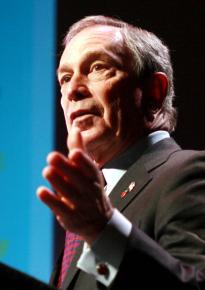Will the UFT stand up to Bloomberg?
, a high school teacher in New York, looks at the key issues in the union election that's drawing to a close.
THE 200,000 members of the United Federation of Teachers (UFT) received their ballots for the citywide union elections this March, in the midst of some of the fiercest attacks on our union in decades.
The state legislature is threatening between 4,000 and 8,500 layoffs, Chancellor Joel Klein is attempting to fire teachers for poor student test results and Mayor Michael Bloomberg is intervening in current contract negotiations by publicly pushing to eliminate job security provisions in order to lay off high-seniority--and better-paid--teachers.
The key question in the UFT elections is what strategy to take against this rising tide of attacks. The UFT has been dominated for decades by the Unity caucus, which has made major concessions in work rules and job security in exchange for pay raises. In opposition, a variety of groups have sprung up to challenge this concessionary agenda and demand a mobilization of the membership to resist the city's demands. Greater union democracy is also a key part of the opposition's platform.

The teachers, guidance counselors, secretaries, paraprofessionals, nurses, home child-care workers and other educational workers in the New York City school system must choose between current President Michael Mulgrew and opposition challenger James Eterno. Mulgrew, the candidate for the Unity caucus, has been president for a year, appointed in his position by the UFT executive board when previous president Randi Weingarten ascended to the presidency of the American Federation of Teachers.
Eterno, the chapter leader of Jamaica High School in Queens--which is slated for closure--leads an opposition coalition of two groups, the Independent Community of Educators (ICE) and Teachers for a Just Contract (TJC). This alliance is fighting to hold the line on seniority and tenure rights, reduce class size and end harassment by principals.
ESSENTIALLY, THE opposition groups want the union to stop making concessionary deals with the city, and instead galvanize the membership to take a stand against the attacks from Bloomberg and Klein.
For example, when the union's contract with the city expired in October 2009, the UFT had the opportunity to publicize the city's draconian union-busting demands to its membership and the city at large amid a closely contested mayoral election. Instead, the union sat out the election and chose the passive option of going through a fact-finding procedure at with the state labor board.
The same fact-finding procedure resulted in major concessions in the 2005 contract. This time around, members were kept in the dark by a negotiating committee sworn to secrecy about the negotiations--that is, until the mayor trumpeted his contracted demands in a nationally publicized speech. To date, there has been no hint of action on the contract talks.
Meanwhile, the city has moved to shutter a number of high schools on the thinnest of educational justifications. This has forced the leadership to make some token mobilizations, including a series of rallies at individual hearings at schools and rally at the city's Panel for Education Policy meeting on January 26. Now that a successful lawsuit by the UFT and the NAACP has temporarily halted the closings, it is an open question whether mobilization will continue, or the UFT will continue to simply rely on the courts.
In this environment of increasing attacks on public education, new activists are joining the ranks of those who see the UFT leadership as an obstacle to struggle. Two new groups, Teachers Unite and the Grassroots Education Movement (GEM), have in particular made their presence felt in the past year, even though they are not directly involved in the elections.
Teachers Unite is a membership-based grouping mostly of younger teachers, organizing around a variety of issues. For its part, GEM has fought against the school closings and the encroachment of semi-private charter schools, particularly in Harlem, where they have been crowding out traditional public schools.
The opposition groups are in an uphill fight against the Unity machine, however. Unity has vast patronage resources at its disposal, including after-school jobs only open to caucus supporters and convention junkets to reward loyalists. Run on iron discipline-- members must forswear any external dissent--the caucus has maintained more or less absolute control over the union for decades.
However, there's growing anger and ferment among rank-and-file teachers as we see job security slipping away and no clear strategy from our union leadership to stop the erosion of our rights. Even if an opposition victory is almost impossible at the moment, a vote for ICE-TJC will help sent a message to our leadership and members across the city that fighting back is possible.
As ICE candidate for executive board Arthur Goldstein put it in a recent letter to his chapter:
We act in the interests of working teachers, and we don't fret over whether or not it will get us invited to the next convention or gala luncheon...We don't believe in dumping every gain we made over 20 years for a few points above the pattern. Nor do we believe in negotiating a 10 percent compensation increase for 10 percent more work and calling it a raise.


